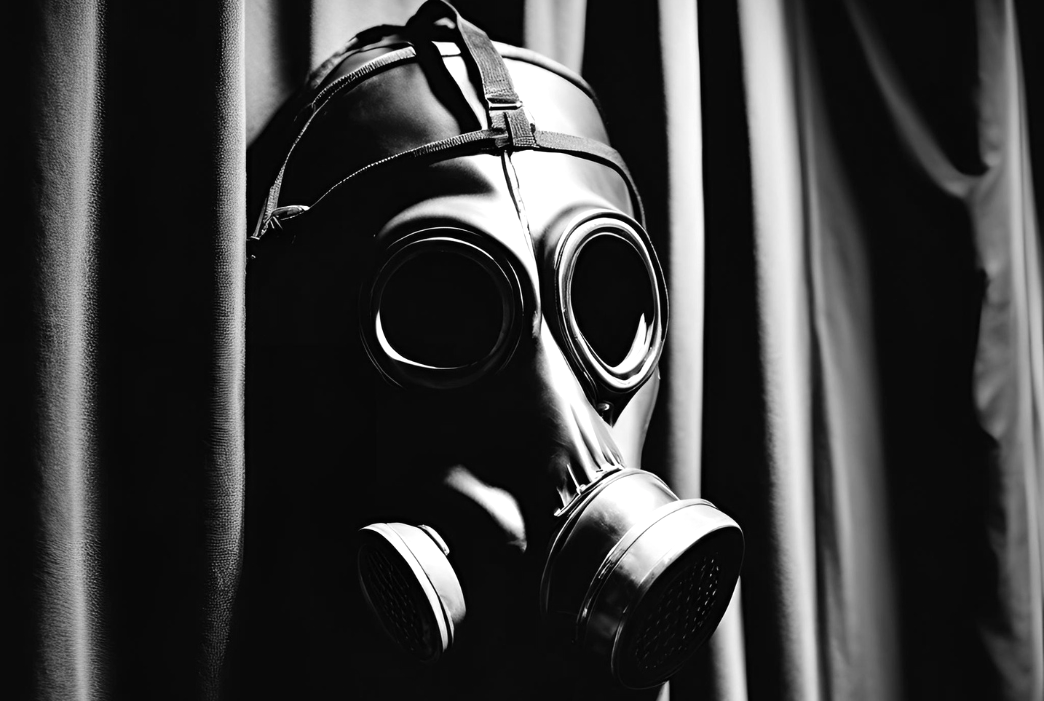• Disclaimer:
This blog post adopts a critical perspective on tweets and online content that explicitly trivialize and hyper-sexualize women's bodies, essentially amounting to sexual harassment. It includes such material solely for discussion and critical analysis. As editors and authors of Security Praxis, we do not endorse or support the harmful language or behaviors depicted in the online content analyzed. However, we believe it is crucial to address them directly within this and other detailed critiques, as confronting problematic content is essential to fostering a deeper understanding of the issues surrounding online harassment and social discourse. Viewer/reader discretion is advised.
•
As the number of female combatants worldwide steadily increases, their once symbolically empowering role is now increasingly exploited as material for harmful propaganda.
In the digital age, the fungibility of women as a weapon in a state’s arsenal is not limited to their actions on the battlefield. Still, their hypersexualized portrayal is used more and more to garner public support and attention. These soldiers turn into objects online, photographed in alluring poses, portrayed as either erotic or cute but consistently framed as innocent.
The aim then becomes clear when such portrayals are used by countries leading military campaigns. By underlining the presence of women on the battlefield and stressing their role as vulnerable and submissive caretakers, the extent of violence and crimes is downplayed. At the same time, the state appears as modern and emancipated. This comes with a dangerous downside for women, as sexualization is psychologically proven to fuel discrimination and sexual violence in environments like the military.
A long-standing example of the ongoing trend of hypersexualized portrayals is the case of Israel, with evidence of eroticization and objectification of women soldiers of the Israeli Defence Forces (IDF), a phenomenon called Combat Cuties, dating back to the early 2000s.
Israel: women, military, and propaganda
The IDF was founded in 1948, with mandatory conscription for men and childless women at the age of 18, an innovative system compared to the American or British one. Despite being initially relegated to non-combat positions by the first Security Service Law, women were quickly integrated as the system swiftly evolved with a liberalization of positions open to female combatants.
Bureaucratically, a significant milestone was the establishment in 2000 of the Caracal Battalion. Stationed on the Israeli-Egyptian and Israeli-Jordanian borders, in this battalion male and female soldiers share the same roles, and women make up 60% of its participants.
This trend has continued expanding: as of March 2023, more than 90% of IDF positions, ideally meant for men, are theoretically open to female soldiers too - and are now being occupied by female soldiers during the ongoing attacks on Gaza.
Despite the widespread access to women soldiers in the IDF, the discriminatory stereotypes and structural barriers for women inside the Forces are still well eradicated. For instance, women who pursue a full-time military career beyond the conscription time experience discrimination in promotions.
More alarmingly, an increasing number of female soldiers have been victims of sexual harassment or abuse. In 2020, a staggering figure of sexual assault was reached - 1542 sexual assault complaints, out of which only 31 indictments were filed.
The trend persevered the following year when a report from the State Comptroller found that one-third of IDF women soldiers (IDFWS) had experienced sexual harassment, including the filming and circulation of unconsented videos and pictures, underlining the harmful nature of visual propaganda.
The sexualized portrayal of soldiers is a vicious cycle: not only does the IDF act poorly to counterbalance the issue, but feeds into it. Precisely, the lack of intervention to limit the objectification of female bodies increases the idea of exploitable women and reduces the likelihood of them reporting sexual violence.
Weaponizing Beauty
These propaganda attempts are not limited to a national scale; the Israeli government and armed forces have employed women's bodies as a tool of public diplomacy (Hasbara) worldwide. In this framework falls “Brand Israel,” a public relations campaign instituted in 2005 by the Foreign Ministry in response to the crescent international boycott of Israeli organizations in the Occupied Palestinian Territories.
Among those efforts was the Brand Israel campaign of July 2007 in the US men’s magazine MAXIM, which consisted of a photo shoot orchestrated by Israel’s Ministry of Foreign Affairs and the American-Israel Friendship League. The magazine showcased 5 Israeli models who served in the IDF posing scantily dressed, accompanied by a description solely focusing on their relationship with male soldiers.
As stated by David Saranga, Consul for Media and Public Affairs in New York, the aim was to create a better perspective of Israel for American men aged 18-38 and change the global perception of Israel as a land of strict conflict.
The overly sexualized portrayal of IDFWS on MAXIM is not limited to the 2007 scandal, but it has continued with “articles” from 2017 and peaked in the past years.
With mass media becoming a powerful tool for Hasbara, the phenomenon of Combat Cuties has spilled over to user-generated content-based social media.
After the start of the war in Gaza, IDF-related social media pages (both belonging to male soldiers and pages of self-proclaimed “IDF Babes” - the modern version of Combat Cuties) have started sharing pictures in alluring poses.
While a few IDFWS are riding this wave of fame, posting dances on TikTok or monetizing their selfies on X with a verified account, there are some hugely-followed profiles. Among them stands out the viral account of Natalia Fadeev, a reservist in the Israeli Defence Forces, and Twitter/Instagram user Gun Waifu (@nataliafadeev), who has been sparking controversies with her content since 2021.


The degree of self-sexualization in Gun Waifu posts varies, ranging from displaying her body in front of the camera asking for feedback on the IDF to using an alluring angle and pouty lips (linked to the infantilizing caption) to appear more innocent in the face of war crimes.
Even though the IDF did not directly post these, they were not eliminated, despite violating the code of conduct of soldiers and showing soldier’s uniform on social media. The purpose is to soften the blow, distracting the audience and making the audience perceive war crimes as less brutal, which becomes evident, taking into account that countries that endorse this content nowadays are Israel and Russia.
In particular, this adds to the narrative of Israel being the only “democracy of the Middle East,” seeking active cultural proxy with the West for ideology and aesthetic affinity. Following this trope, Israeli women are powerful soldiers who are allowed to pose half naked, an emblem of gender equality, which is compared to their neighboring Arab countries. By sharing this sexualized content, not only does Israel attract the mediatic attention of its target audience (younger males) and distract from its military actions, but it also seeks to appear as superior to Palestinians by Western standards for allowing women not to cover up.
Examples of this are posts or comments on X.com sharing pictures of female soldier with captions such as “[...] it also annoys the hell out of the islamists to see empowered strong women” or “women are free in Israel but in Islamic countries, women are flogged and executed”. For such users, the war is not only fought on the battlefield but also on women’s bodies, used as a pawn to prove superiority and morality in the Region and to allies such as the US.
The comments to posts of IDFWS women scantily dressed are, however, far from empowering. While on TikTok, under official IDF posts, the comments are predominantly on the current war, condemning Israel’s actions, the comments on X.com show different trends. There, the most active and blue-check verified accounts belong both to female and male IDF soldiers- the most popular being led by the user mentioned above. At first glance, the comments are mainly pro-Israel, with a few pro-Palestine statements, but with a few scrolls, a concerning portion of replies are men commenting on soldiers' bodies becomes evident. There, regardless of pro or anti-Israeli stance, users address women with derogatory terms (e.g., 'whores') or explicitly sexualize them, fantasizing about their bodies and comparing them to sex workers.
However, this trend has grown worse over time.
In the examples reported above, the comments on tweets from “GunWaifu” dated November 2023 show politically enraged comments, criticizing Israel and defending Palestine - and frequently calling out the sexualizing posting.

In the most recent post from October 1, 2024, comments defend Israel and, most prominently, vulgarly comment on her body.

How harmful?
If the original aim of these shoots and posts was to increase Israeli public support it is difficult to prove their success. The decrease in pro-Palestine comments can be due both to changes in the X algorithm in the past year (especially since this issue is prevalent on X compared to other platforms) and changes in international affairs.
Still, the shift in comments content from war to sexuality shows that they succeeded in taking the attention away from conflict and focusing on beauty rather than cruelty. In this, based on frequent comments, improper or alluring media both distract from current events and intend to remind users of Israel’s moral superiority and vicinity to Western standards.
Thus, it is crucial to underline that most of the positive comments are tweeted by men who state in their bio to be from the United States, seemingly carrying forward the legacy of the 2007 MAXIM photoshoot targeted at young American males and adhering to US/Western beauty standards.
It is additionally essential to note that only a few users are riding the wave of Internet fame by sexualizing their bodies (which could also be perceived as empowering). Most women have, especially in the last year, traditionally and strictly served the military and proved their increased presence and obedience to the code of conduct in the ranks.

However, the most worrisome trend is men and male soldiers posting IDFWS content and not ever calling out or moderating sexual comments. As sexualization is psychologically proven to fuel sexual offenses (which for the IDF encompasses non-consensual circulation of images) and discrimination, the sexualizing and ineffective content creation to garner pro-Israel support could just end up undermining the safety and agency of female soldiers.

